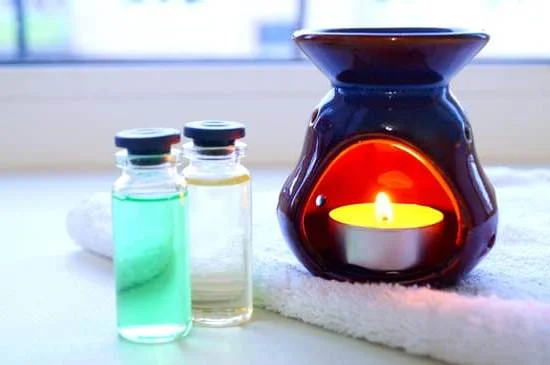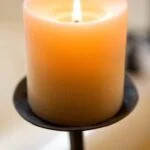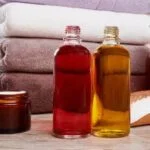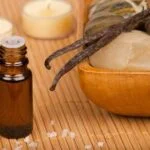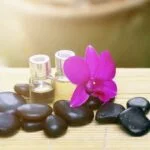Are you wondering how to list an aromatherapy diploma on your resume or professional profiles? In the field of holistic health and wellness, obtaining a diploma in aromatherapy can be a valuable asset.
Aromatherapy is a growing industry that offers various career opportunities, and having a recognized diploma can set you apart from other candidates. This article will provide guidance on the importance of accreditation and certification, the steps to obtaining an aromatherapy diploma, and how to effectively showcase your education and experience.
First and foremost, understanding the value of aromatherapy diplomas is essential for anyone pursuing a career in this field. Whether you’re looking to become an aromatherapist, essential oil educator, or product developer, having a diploma shows that you have completed a comprehensive training program and have acquired the necessary skills and knowledge. Not only does it demonstrate your commitment to professional development, but it also gives potential employers or clients confidence in your abilities.
Additionally, it’s important to consider the accreditation and certification of the program from which you obtained your aromatherapy diploma. Accreditation ensures that the training program meets certain standards of quality and rigor, while certification validates your expertise in the field.
These factors play a crucial role in determining the value of your diploma and can greatly impact your career opportunities. Moving forward, we will delve into the steps for obtaining an aromatherapy diploma and how to effectively highlight it in your professional endeavors.
The Importance of Accreditation and Certification
Accreditation and certification are crucial aspects of obtaining an aromatherapy diploma. These credentials not only validate the quality of your education and training but also demonstrate your commitment to professionalism in the field of aromatherapy. When considering where to pursue your aromatherapy education, it’s essential to choose a program that is accredited by a reputable organization such as the National Association for Holistic Aromatherapy (NAHA) or the Alliance of International Aromatherapists (AIA).
In addition to accreditation, obtaining certification from a recognized aromatherapy association can further enhance the value of your diploma. For example, becoming a Certified Aromatherapist (CA) through NAHA or a Registered Aromatherapist (RA) through AIA demonstrates that you have met specific competency standards and ethical guidelines in the practice of aromatherapy.
The process of accreditation and certification may vary depending on the organization and program you choose. Generally, it involves completing a specified number of hours of education and training, passing an exam, and adhering to a code of ethics.
By obtaining accreditation and certification, you not only enhance your professional credibility but also position yourself as a qualified practitioner in the field of aromatherapy. Thus, ensuring that when listing your aromatherapy diploma on professional platforms or job applications, you are recognized as having met recognized industry standards.
| Credentials | Relevance |
|---|---|
| Accreditation | Demonstrates quality education |
| Certification | Validates competency and ethical practice |
Steps to Obtaining an Aromatherapy Diploma
Researching Aromatherapy Programs
Before obtaining an aromatherapy diploma, it is essential to research and find the right program for your educational needs. Look for programs that are accredited and recognized in the industry. Consider factors such as program length, curriculum, hands-on training, and opportunities for internships. It’s important to choose a program that aligns with your career goals and provides a comprehensive education in aromatherapy.
Completing Coursework and Hands-on Training
Once you have selected an aromatherapy program, the next step is to complete the required coursework and hands-on training. This typically involves learning about essential oils, therapeutic properties, blending techniques, safety guidelines, client consultation skills, and more. Hands-on training may include activities such as creating custom blends, conducting client assessments, and practicing aromatherapy techniques under the supervision of experienced instructors.
Earning Certification and Accreditation
After completing the necessary coursework and training, it’s time to earn certification from a reputable aromatherapy organization or institution. This may involve passing an exam or meeting specific requirements set forth by the certifying body. Additionally, ensure that your chosen program is accredited by a recognized accrediting agency to validate the quality of your education. Certification and accreditation demonstrate your competence and dedication to upholding professional standards in aromatherapy.
By following these steps in obtaining an aromatherapy diploma – researching programs, completing coursework and training, earning certification and accreditation – individuals can establish a solid foundation for their career in aromatherapy. Each step plays a crucial role in acquiring the knowledge and skills needed to excel in this field.
Highlighting Aromatherapy Education and Training
When highlighting your aromatherapy education and training on your resume or professional platforms, it’s important to provide specific details about the program you completed. This can include the name of the institution or organization where you obtained your diploma, the duration of the program, and any specialized courses or areas of focus within aromatherapy that you studied.
By providing this information, you are demonstrating to potential employers or clients that you have received comprehensive and thorough training in the field.
Emphasizing Key Learning Outcomes
In addition to providing details about the program itself, it’s also important to emphasize the key learning outcomes and skills that you gained through your aromatherapy education. This can include knowledge of essential oils and their therapeutic properties, an understanding of aroma psychology and how scent can impact emotions and well-being, as well as proficiency in creating custom blends for various purposes.
Highlighting these specific skills will demonstrate your expertise in aromatherapy and showcase the value that you can bring to potential employers or clients.
Showcasing Continued Professional Development
Finally, when highlighting your aromatherapy education and training, it’s beneficial to showcase any additional professional development or continuing education courses that you have completed within the field. This demonstrates a commitment to staying current with industry trends and best practices. Whether it’s advanced coursework in a specialized area of aromatherapy or attendance at professional conferences and workshops, showcasing continued learning will further strengthen your qualifications and make you stand out as a dedicated and knowledgeable aromatherapist.
Showcasing Practical Experience and Internships
When it comes to listing an aromatherapy diploma, practical experience and internships play a crucial role in highlighting your expertise in the field. These experiences provide valuable hands-on training that can set you apart from other candidates when applying for jobs or seeking career advancement opportunities in aromatherapy.
Here are some ways to effectively showcase your practical experience and internships:
- Include a section on your resume specifically dedicated to detailing your practical experience and internships in the field of aromatherapy.
- List the specific tasks and responsibilities you undertook during your practical experience and internships, highlighting any unique or noteworthy projects you were involved in.
- Provide concrete examples of how your practical experience and internships have contributed to your skillset and knowledge of aromatherapy, emphasizing any special achievements or recognition received during these experiences.
Additionally, don’t underestimate the value of networking during your practical experience and internships. Building connections with professionals in the industry can provide valuable references and recommendations when applying for jobs or seeking further education.
Highlight any networking opportunities or mentorship you gained during these experiences to demonstrate your commitment to professional growth in aromatherapy. By effectively showcasing your practical experience and internships, you can elevate the impact of your aromatherapy diploma and position yourself as a standout candidate for career opportunities in the field.
Crafting an Impressive Aromatherapy Resume
When crafting your aromatherapy resume, it’s essential to showcase your education and training in the field. This will help potential employers understand your level of expertise and qualifications. Here are some tips for effectively highlighting your aromatherapy diploma on your resume:
- Create a section specifically for education and certifications: Make sure to include the name of the institution where you obtained your aromatherapy diploma, the location, and the dates attended. If applicable, mention any academic achievements or special recognition.
- Detail relevant coursework: Provide a brief description of the coursework you completed as part of your aromatherapy diploma program. This can help demonstrate your knowledge in areas such as essential oils, holistic health practices, and client assessment.
- Emphasize any additional certifications or specializations: If you pursued additional training or obtained certifications in specific areas of aromatherapy, be sure to include these on your resume as well. This can further highlight your expertise and dedication to continued learning in the field.
By following these tips, you can effectively showcase your aromatherapy diploma and related education on your resume, increasing your chances of standing out to potential employers in the field.
Remember that your resume should be tailored to each job application, so be sure to highlight aspects of your education and training that are most relevant to the specific role you are applying for. With a well-crafted resume, you can effectively communicate the value of your aromatherapy diploma and set yourself apart from other candidates in the industry.
Listing Aromatherapy Diplomas on LinkedIn and Other Professional Platforms
After obtaining your aromatherapy diploma, it’s important to showcase this achievement on professional platforms such as LinkedIn. Including your aromatherapy diploma on these platforms can help you network with other professionals in the field and enhance your credibility as an aromatherapist. By listing your diploma, you are not only highlighting your education but also demonstrating your commitment to the field of aromatherapy.
When listing your aromatherapy diploma on LinkedIn, be sure to include the official title of the program and the institution where you obtained the diploma. This information provides credibility and allows potential connections or employers to verify your credentials. Additionally, consider adding any specializations or concentrations within the aromatherapy program, as this can further demonstrate your expertise in specific areas of aromatherapy.
In addition to LinkedIn, there are other professional platforms where you can list your aromatherapy diploma. Websites such as Indeed, Glassdoor, and professional associations’ websites often have sections for members to display their certifications and diplomas. Take advantage of these platforms to increase visibility within the industry and connect with like-minded professionals. It is also important to keep these listings updated if you obtain additional certifications or advanced training in aromatherapy.
By effectively listing your aromatherapy diploma on professional platforms, you can establish yourself as a credible and knowledgeable aromatherapist. This visibility can open up opportunities for career advancement, collaboration with other professionals in the field, and potential job openings that align with your skills and expertise in aromatherapy. Making use of these platforms allows you to maximize the benefits of earning an aromatherapy diploma and leverage it for future career success.
How to Stand Out With Your Aromatherapy Diploma on Job Applications
When applying for a job in the field of aromatherapy, it is important to showcase your qualifications and stand out among other candidates. Listing your aromatherapy diploma on job applications can greatly increase your chances of getting hired. Employers often look for candidates who have received proper training and education in aromatherapy, so it is essential to highlight your diploma in a professional and compelling manner.
One effective way to stand out with your aromatherapy diploma on job applications is by including specific details about your education and training. In addition to listing the name of the program or institution where you obtained your diploma, you should also mention any specialized courses or areas of focus within aromatherapy that you studied. This will demonstrate a comprehensive understanding of the field and show that you are well-equipped to handle the responsibilities of the job.
Another important aspect of listing an aromatherapy diploma on job applications is to emphasize any certifications or accreditations that accompany it. Employers value credentials from reputable organizations, so be sure to include this information prominently in your application materials. This will not only validate the legitimacy of your diploma but also enhance your credibility as a professional aromatherapist.
| Tip | Data |
|---|---|
| Include specific details about your education and training | Mention specialized courses or areas of focus within aromatherapy |
| Emphasize any certifications or accreditations | This will validate the legitimacy of your diploma and enhance your credibility as an aromatherapist. |
Leveraging Your Aromatherapy Diploma for Career Advancement
In conclusion, obtaining an aromatherapy diploma can be a valuable asset for anyone looking to advance their career in the field of holistic health and wellness. By completing a comprehensive aromatherapy program and earning a diploma, individuals can demonstrate their commitment to excellence and dedication to professional development.
One of the most important aspects of leveraging an aromatherapy diploma for career advancement is ensuring that the program is accredited and recognized by reputable organizations within the industry. This accreditation not only adds credibility to your qualifications but also ensures that you have received proper training and education in aromatherapy practices.
Furthermore, listing your aromatherapy diploma on professional platforms such as LinkedIn can greatly enhance your visibility to potential employers and clients. By showcasing your education, training, and practical experience in aromatherapy, you can position yourself as a knowledgeable and skilled professional in the field.
Additionally, crafting an impressive resume that highlights your aromatherapy education and expertise can help you stand out among other candidates when applying for job opportunities or seeking career advancement within the industry. Overall, leveraging your aromatherapy diploma requires strategic positioning of your qualifications and effectively communicating the value you can bring to any organization or practice related to holistic health and wellness.
Frequently Asked Questions
Is an Aromatherapy Certification Worth It?
An Aromatherapy Certification can be worth it for those looking to establish credibility and expertise in the field. It can also provide a structured education and training that may not be available through self-study.
What Is the Education of an Aromatherapist?
The education of an aromatherapist typically involves learning about essential oils, their properties, and various methods of application. This may include coursework in anatomy, physiology, and botany as well as practical training in blending oils and creating aromatherapy products.
Do You Need Certification for Aromatherapy?
While certification is not always required for practicing aromatherapy, having a certification can enhance one’s credibility and marketability. It also demonstrates a commitment to professionalism and adherence to certain standards within the industry.

Are you looking for a natural way to improve your health and wellbeing?
If so, aromatherapy may be the answer for you.

